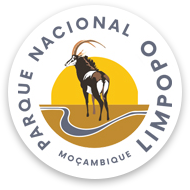The National Administration of Conservation Areas (ANAC) in Mozambique is gravely concerned about an apparent escalation of wildlife poisoning incidents in Limpopo National Park, following the recent discovery 45 vulture carcasses in the central western area of the park.
The remains of the vultures and one jackal were found on 25 August during a routine patrol. They had all fed on a nyala that had been poisoned, unfortunately resulting in their deaths. All the vultures’ beaks and claws were intact, leaving experts to speculate on the true intent and targets of the poison attack.
Of serious concern, is the fact that a pride of lions with cubs were spotted a mere 200 meters from the crime scene. The group was monitored and fortunately they were in good health and have not consumed any of the poisoned carcass. Just more than one month ago two lions were killed in the Park after being baited with poisoned meat while a third was snared at the same location. In this instance they were definitely targeted as body parts were removed. In late 2016 swift action from law-enforcement teams led to the arrest of two poachers who were in possession of lion bones who have since been sentenced to eight years imprisonment each for their involvement in the poaching of lion within the Park. The Mozambique government has no tolerance for environmental crimes and any person found to be involved in trafficking or poaching of endangered or threatened species can be given a jail sentence of up to fifteen years.
In order to prevent any further impact from the most recent poisoning, the remains of the nyala, vultures and jackal were burnt subsequent to the necessary crime scene analysis.
Countering these regional poisoning incidents is extremely challenging as the poison can be transported in concealed or disguised small packages and are readily available from most informal markets. Park authorities are making concerted efforts to enhance anti-poaching and poisoning controls, which include providing Limpopo National Park field rangers with poisoning awareness training. In addition the Great Limpopo Transfrontier Conservation Area (GLTFCA) Wildlife Poisoning Task Team has developed a poisoning response operations manual and set up a central database for tracking and analyzing of all poisoning events across the international boundary between the three partner countries, namely Mozambique, South Africa and Zimbabwe.
A reward is being offered for anyone who comes forward with information that could lead to the arrest and prosecution of anyone involved in wildlife crime within Limpopo National Park. Please contact Mr Cornelio Miguel on +258 87 403 6989 or corneliomiguel@gmail.com.
Peace Parks Foundation recently committed a further R5.0 million to help bolster anti-poaching efforts of the rangers working in Limpopo National Park. With this funding an Intensive Protection Zone (IPZ) has been expanded. The control room has also been optimized with latest technology monitoring systems by also using the new digital radio network to enable real time tracking of all patrols. The funding is also used to cover an incentive scheme for rangers, the operational costs of a dedicated aircraft in the IPZ and the appointment of a Law Enforcement Operations Manager.

